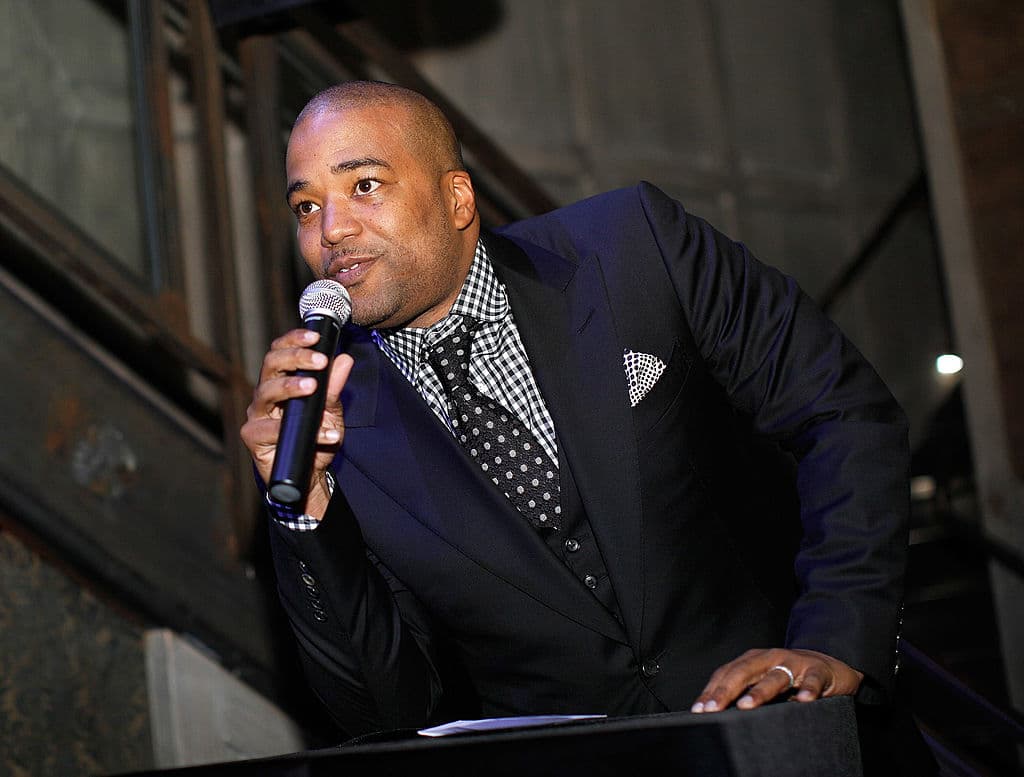
More than a music artist manager, legendary music executive Chris Lighty was a street legend who worked hard from the bottom up to the boardroom and became one of the most powerful players in hip-hop. Lighty would use the name of his former gang, the Violators, to brand his eventual Violator Management company and later, Violator Records. A shortlist of his clients reads like the who's who of hip-hop royalty: A Tribe Called Quest, LL Cool J, Missy Elliott, Busta Rhymes, Fat Joe, 50 Cent, Nas and so on. In 2004, Lighty brokered the largest brand endorsement deal in hip hop to date. He was the architect of what turned out to be one of the most lucrative deals in hip hop history. Because he understood the business and culture of hip-hop, he earned a reputation as a manager who spoke his artists' language and translated it into monumental deals.
Lighty got his start with DJ Red Alert when he was managing and producing the Jungle Brothers. Red put Chris on the road, where he began to earn a reputation as a tough-as-nails manager. His roster went on to include Native Tongues artists A Tribe Called Quest and De La Soul, and his outside-the-box ingenuity caught the attention of Russell Simmons and Lyor Cohen. Lighty then joined Rush Management, where he handled Will Smith, Rakim, Run DMC and LL Cool J.
When Rush closed their doors, Cohen and Simmons gave him their blessing to start his own company with some of those same clients, and Violator Management—a multi-million dollar empire—was born. In Lighty’s hands, 50 Cent became a household name and garnered his groundbreaking deal with Vitamin Water. When Coca-Cola paid $4.1 billion for Vitamin Water's company Glaceau three years later, 50 Cent received $100 million, and Lighty received an undisclosed sum.
The 44-year old Lighty reportedly shot himself after a fight with his wife at their condo in the Bronx. And according to newspaper reports, Chris Lighty owed $5 million to the IRS.
But it's Lighty's tragic passing, ruled a suicide in 2012, that makes his story similar to other Black men who have died by suicide: Soul Train's Don Cornelius, NFL's Junior Seau, linebacker Jovan Belcher...the list goes on. Once again, the spotlight has been brought back to an issue that deserves, but is consistently denied, a real and meaningful platform: black suicide.
Jovan Belcher, 25, shocked the world by shooting his girlfriend, and the mother of his 3-month old child, Kasandra Perkins, 22, to death, then driving to the team training facility at Arrowhead Stadium and killing himself in front of his coach and general manager in a burst of violence.
The mother told investigators that Perkins and Belcher had quarreled just before the shooting, but that Belcher had never before been physically abusive with her daughter, Snapp added.
One of the most prevalent views within the African-American community is that we do not intentionally kill ourselves. That suicide is something only white people or spiritually-weak people do. That suicide is a cop-out, and that to even consider it is a “punk move”. However, these apparent suicides and clinical research clearly indicate that African-Americans do commit suicide.
Why Do These Stigmas Exist In The Black Community?
In the Black community, there is a culture of silence around the issues of mental health, sexuality, marital infidelity, homophobia and other forms of sexual difference, poverty, neglect and abuse, and specific health problems people are experiencing.
It isn't that people don't talk about these matters at all; they just don’t regularly talk about them in public spaces. Instead, we whisper about them in safe, private spaces with people who shared our sensibilities of what it means to be...
...Black, and where we can feel that we as a community aren't being judged negatively. Any public talk that would expose, embarrass, alienate, or bring harm to a member of our family, close social network or race as a whole is avoided.
While the foundations of these stigmas are meant to be protective, there are still the unintended negative health consequences that emerge.
This culture of silence continues to be a significant risk factor for many health disparities in the Black community, particularly mental illness and chronic illnesses such as diabetes.
How can we become healthier as a people? By finally giving a real voice, and not just whispers, to these stigmatized issues.
The Sad (And Real) Facts On Black Suicide
According to the American Association of Suicidology, in 2005, 1,992 suicides were completed by African-Americans and that suicide was the third leading cause of death among African-American youth. The Centers for Disease Control reported that between 1999 and 2004, young African-American males had the highest rate of suicide. This latter finding is consistent with research that males are more likely to complete suicides whereas females are more likely to attempt suicide.
One reason for the difference is that men tend to choose more lethal means of death than women. But please do not take this to mean that African-American women do not commit suicide; the same 2005 data from the American Association of Suicidology reports of the 1,992 completed suicides among African-Americans that 371 of those deaths were by females. It is also important to note that, generally, there tends to be a underreporting of this behavior, so the numbers may be higher than those cited.
Read: Black Men & Depression: The Top 8 Signs
Why Are We Killing Ourselves?
So why do people commit suicide? At the heart of suicidal behavior is the strong desire to be free from suffering, whether that be emotional, mental, and/or physical pain. When we are hurting, we typically engage in behaviors to eliminate or at least lessen the pain. There are several risk factors that may suggest that a person is at a higher risk of committed suicide than others. Some of these risk factors are:
- male
- elderly
- chronic pain
- substance use and abuse
- chronic illness
- lack of social support
- poor response or an unwillingness to engage in mental health treatment
- having a friend or family member that committed suicide
- members of the Armed Forces who have had multiple deployments within a short time span
What To Do If Someone You Know Is In Trouble...
If a friend of loved one has threatened to harm themselves, do not make the assumption that they are simply seeking attention. In many cases of suicide, the victim made it known to others that they were thinking about ending their lives.
Additional warning signs include:
- feelings of worthlessness
- no hope for the future
- giving away prized possessions
- withdrawing from others
- impulsive behaviors
- feeling trapped
- significant changes in mood
If any of these are present in you or a loved one, please contact the National Suicide Prevention Hotline at 1-800-273-TALK (8255).
READ: 7 Habits Hurting Men Over 40
The Black Suicide Stigma MUST Change
One of the main differences I have observed in people who have committed or have attempted suicide and others is access to a wide range of resources and the belief they can utilize them. In treatment by a qualified mental health professional, one learns various coping skills to address the causes of their suffering and is provided the support and guidance to put these skills into practice.
The deaths of bright celebrity starts, including Chris Lighty, Junior Seau and Don Cornelius are truly heartbreaking...as are the countless deaths of others in the African American community who felt they had nowhere else to turn. Until the Black community takes bolder steps to abandon this crippling suicide stigma, many of the medical community fear that these tragic statistics will only increase.









